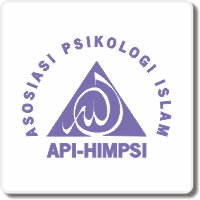The Effect of Self-Regulated Learning (SRL) On Academic Procrastination In Class XI Students of Senior High School 2 Purbalingga, Indonesia
DOI:
https://doi.org/10.32923/psc.v3i2.1855Keywords:
Self-Regulated Learning, Academic Procrastination, StudentsAbstract
Academic procrastination is one of the problems experienced by students, which is caused by feeling tired or bored. While on the other hand, students need the ability to organize themselves to achieve their goals. This study aims to determine the effect of self-regulated learning on academic procrastination in class XI students of SMA Negeri 2 Purbalingga. The hypothesis proposed in this study is that self-regulated learning has a significant effect on academic procrastination in class XI students of SMA Negeri 2 Purbalingga. The sample of this research is the students of class XI SMA Negeri 2 Purbalingga with a total of 80 students. Data were collected by using several instruments in the form of academic procrastination scale and self-regulated learning scale. The academic procrastination scale has a reliability of 0.741 and a self-regulated learning scale of 0.744. The results of the analysis show that the calculated F is 146.734 with a coefficient of p = 0.000 (p<0.01), t = -12.113. It can be concluded that the hypothesis is accepted, namely that there is a significant influence between self-regulated learning on academic procrastination in class XI students of SMA Negeri 2 Purbalingga and self-regulated learning. It has an effect of 65.3% on academic procrastination (R = square = 0.653). For educational institutions, the results of this study can be a contribution to the thought of psychology to design various learning methods that lead to the concept of self-regulation in student learning in order to reduce academic procrastination.
Downloads
Published
Issue
Section
License
Copyright Notice
The Psychosophia: Journal of Psychology, Religion, and Humanity is under the Creative Commons Attribution 4.0 International (CC-BY 4.0) License, according to which:
1) Authors retain copyright and grant the journal the right to first publication, with the work simultaneously licensed under the Creative Commons Attribution (CC-BY 4.0) that allows the sharing of articles published with the acknowledgment of authorship and the initial publication in this journal.
2) The authors are authorized to make additional contracts separately for distribution of the version of the work published in this journal (for example, publication in an institutional repository or as a chapter of the book), as long as there is recognition of authorship and initial publication in this journal.
3) Authors are authorized and encouraged to publish and distribute their work online (for example, in institutional repositories or on their personal pages) at any time before or during the editorial process, as it increases the impact and reference of the published work.






